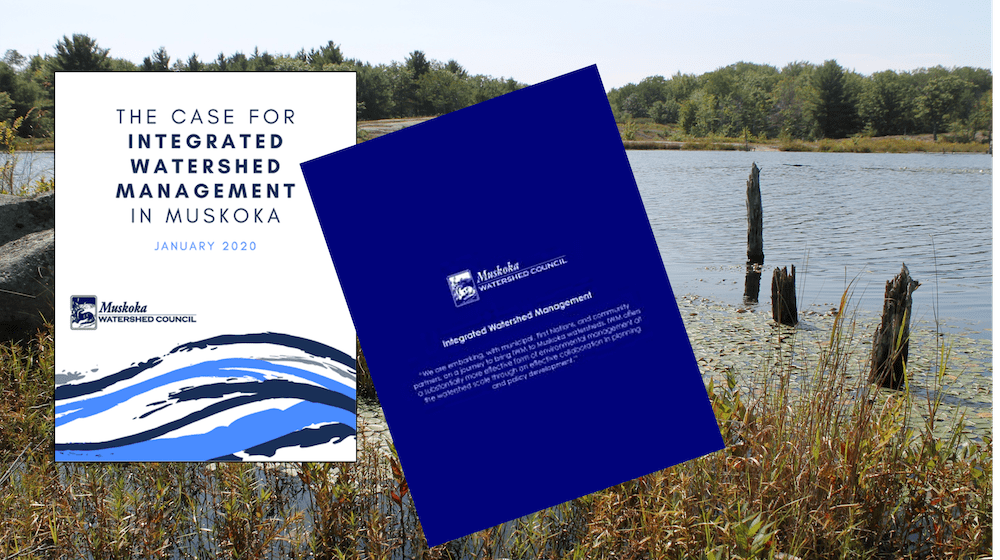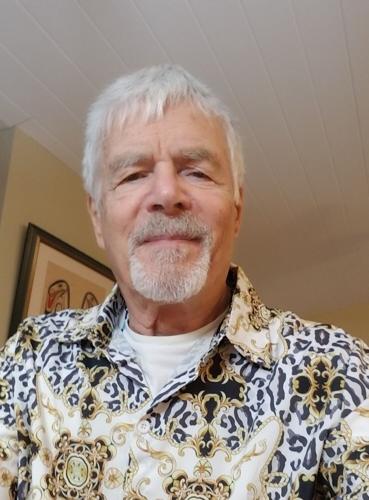How do we nurture our environment more effectively? We integrate.
By Peter Sale | Published July 19, 2025

Over recent months, Muskoka Watershed Council has talked a lot about Integrated Watershed Management. But are we ready yet to explore what IWM involves? It’s not that we don’t know what IWM means; it’s more about gently spinning up a communal sense of needing to work together more effectively. Only then will we be ready to learn the details and move forward.
To begin with, there is the need. And if people don’t believe in that need, nothing will happen, no matter how many MWC members run around shouting out IWM, IWM, IWM like banshees on a dark night.
The 2023 Muskoka Watershed Report Card explained the need, stating, “While currently healthy, [our region’s watersheds] are gradually degrading in several ways and our existing management systems seem incapable of halting or reversing this negative trend.” We backed up that conclusion with detailed analyses of several ways in which the health of our watershed is deteriorating. You have all heard of some of these: not enough calcium, too much salt, more and more algal blooms, and a climate changing rapidly in lots of different ways.
Of course, many in our community won’t have seen the Report Card or may have since forgotten its messages. It is also likely that others viewed the slow trends in degradation the Report Card identified as nothing to worry about yet. We all have other things to think about!
I remind those people of how slow trends can still reach tipping points when things get suddenly worse. Over only a few years, wildfire regimes around the world have become notably worse than they were before. Ditto for severe floods. And heat waves. Climate change is leading to suddenly severe change in “the way things used to be” all over the world, including the Muskoka region. MWC did not stress the seriousness of our current situation just for fun. The need to act is real.
There are many reasons to want to keep our watersheds healthy. We like living in this place. We enjoy the outdoor recreation. Sunrise over the lake, a forest hike on a perfect Fall day, or simply glimpsing otters playing in the snow can each bring solace, peace of mind, a sense of belonging.
More prosaically but just as important, our economy is vitally dependent on this wonderful environment. We at MWC believe these reasons are sufficient to convince most of our community that retaining the health of our watersheds is vitally important to us. And it follows therefore that we need to improve our environmental nurturing.
Once the majority of us are on board with the idea that this need for enhanced management is real, we have to decide how to do that. Perhaps some expert from Queens Park will come and tell us what to do? I think we’d be waiting a long time, but I also suspect we would not take kindly to being told what to do by a bureaucrat from away. An independent streak lurks in the heart of those who belong to this special part of Ontario.
MWC is confident that IWM offers an effective way to improve our care for environment. It requires that we recognize the Muskoka River Watershed (over 5000 km2 of forests, streams, rivers, lakes and human settlements) is a natural ecological unit, a living entity made up of numerous species, interacting with each other in ways that determine the overall health of the whole system. Water flows through it from the Algonquin highlands to Georgian Bay and many biophysical and socio-economic processes move water and other things uphill as well. This watershed is a complex, dynamic, interconnected, living system and if we are going to keep it healthy we must learn how to care for it as a living entity. And to do that we must learn how to integrate our efforts effectively.

This is article No. 6 in the series, Living Smarter in Muskoka, from Muskoka Watershed Council. Its author, and editor of the series, is Dr. Peter Sale, retired aquatic ecologist, Muskoka resident, member of the MWC Board, and someone who knows that environmental death by a thousand cuts is still death.
First published on muskokaregion.com
